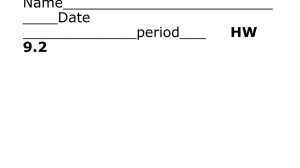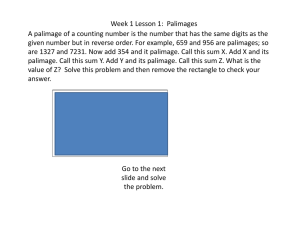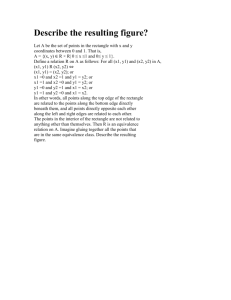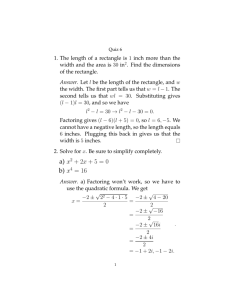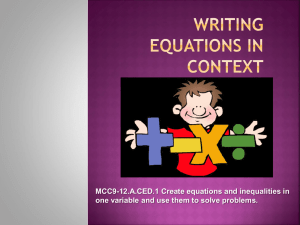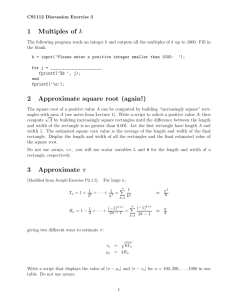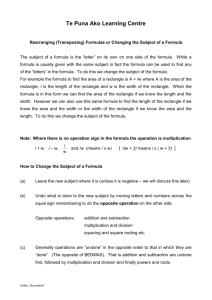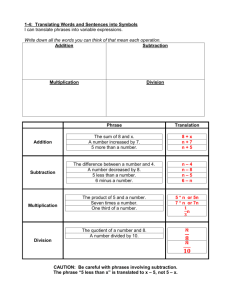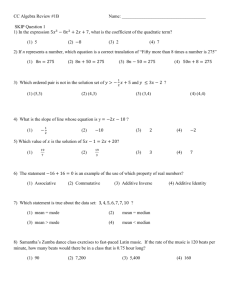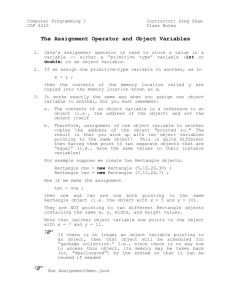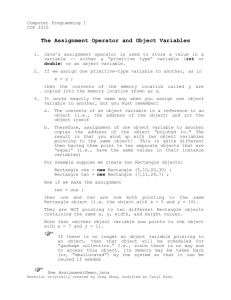Manipulating Formulae for Business Students
advertisement
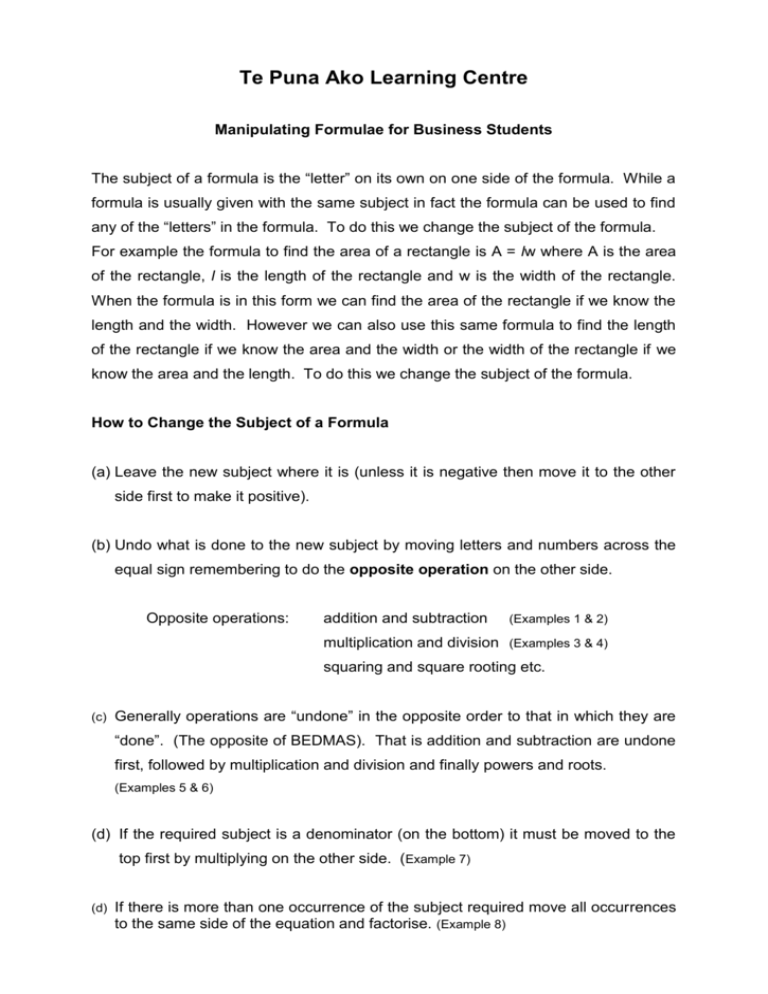
Te Puna Ako Learning Centre Manipulating Formulae for Business Students The subject of a formula is the “letter” on its own on one side of the formula. While a formula is usually given with the same subject in fact the formula can be used to find any of the “letters” in the formula. To do this we change the subject of the formula. For example the formula to find the area of a rectangle is A = lw where A is the area of the rectangle, l is the length of the rectangle and w is the width of the rectangle. When the formula is in this form we can find the area of the rectangle if we know the length and the width. However we can also use this same formula to find the length of the rectangle if we know the area and the width or the width of the rectangle if we know the area and the length. To do this we change the subject of the formula. How to Change the Subject of a Formula (a) Leave the new subject where it is (unless it is negative then move it to the other side first to make it positive). (b) Undo what is done to the new subject by moving letters and numbers across the equal sign remembering to do the opposite operation on the other side. Opposite operations: addition and subtraction (Examples 1 & 2) multiplication and division (Examples 3 & 4) squaring and square rooting etc. (c) Generally operations are “undone” in the opposite order to that in which they are “done”. (The opposite of BEDMAS). That is addition and subtraction are undone first, followed by multiplication and division and finally powers and roots. (Examples 5 & 6) (d) If the required subject is a denominator (on the bottom) it must be moved to the top first by multiplying on the other side. (Example 7) (d) If there is more than one occurrence of the subject required move all occurrences to the same side of the equation and factorise. (Example 8) Examples: To make B the subject: 1. 4. A =B +C 2. A=B-C A = BC A -C= B A+C=B A =B C B=A-C B=A-C B= A= B C 5. A = BC - F 6. A C A = B(C - D) + F AC = B A + F = BC A – F = B(C – D) B = AC A F =B C A F =B C D B= 7. 3. A= DE BC ABC = DE B= DE AC 8. A F C B= BC + BD = A B(C + D) = A B= A CD A F C D Exercise A. Make M the subject if the following formulae 1. MN + P = R 2. P = MN – R 3. M(N – R) = P 4. P = N M 5. P – N = MO – MR B. Make Q the subject of the following 1. T = Q(P – V) – F 2. QP - ZQ = F 3. Q(P - V) - ZQ = F 4. 5. Q(P V) F Z PQ F Z PQ 6. F1 + V1Q = F2 + V2Q Answers A. 1. M = 5. M = B. 1. Q = 5. Q = R P 2. M = N PR N 3. M = P NR N 4. M = P PN O R T F PV F P V ZP 2. Q = 6. Q = F PZ 3. Q = F2 F1 V1 V2 Janet Hogan/Te Puna Ako Learning Centre/UNITEC/2000 F PVZ 4. Q = F PZ
